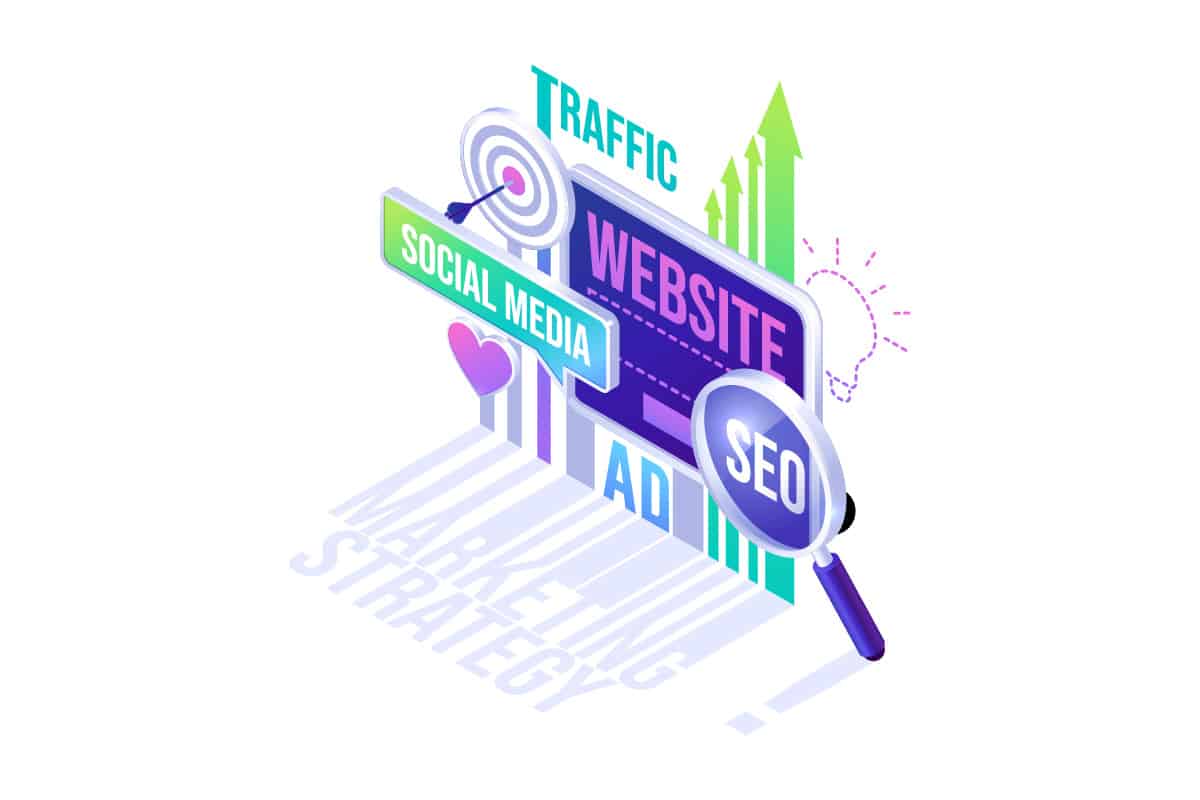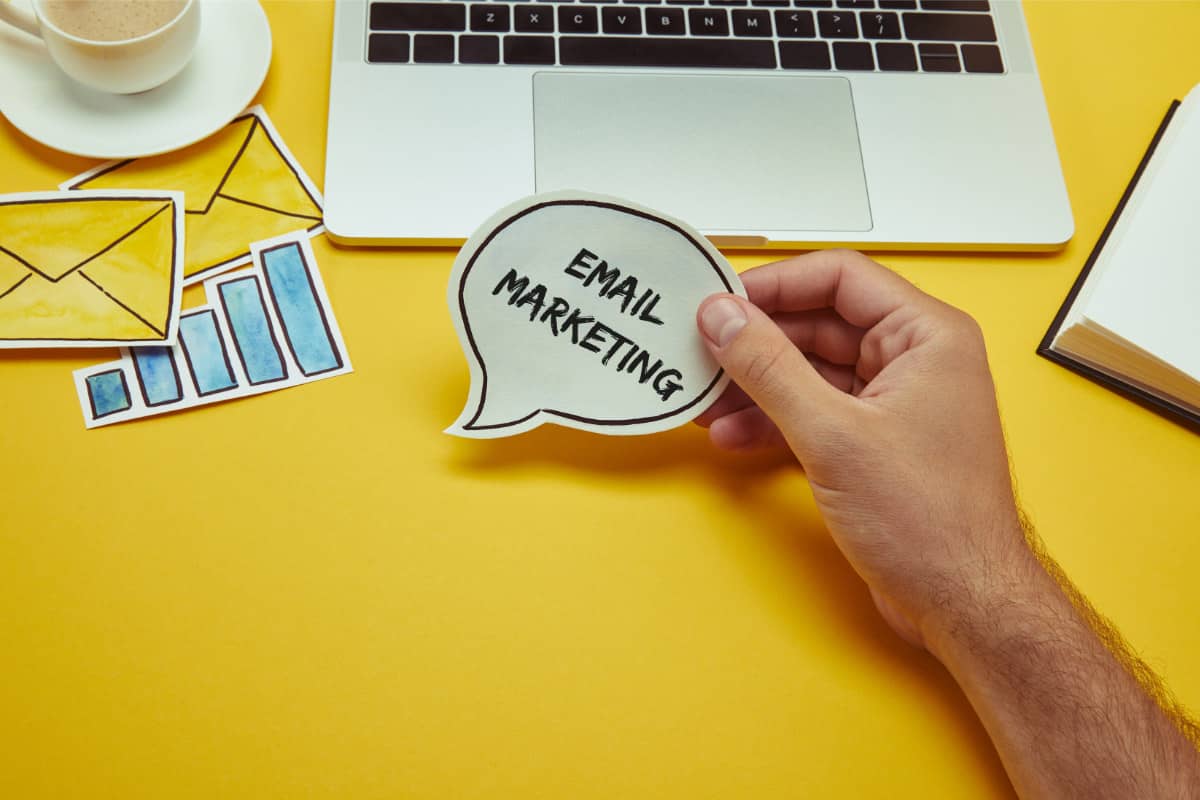According to recent surveys, around half of small businesses don't have a digital marketing strategy in place.
Of course, the problem doesn't stop there. With so many small to medium-sized businesses doing their own in-house marketing and advertising with an uneducated approach, the overrun owners of these establishments are literally tossing their money in the bin.
You see, without the knowledge and understanding of what makes a successful digital marketing campaign, these businesses are making crucial mistakes that could cost them their online reputation.
Not keen to be one of these businesses in the coming year? Keep reading to discover the digital marketing essentials you need to know to ace your online strategy and skyrocket your results.
What Is Digital Marketing?
First things first, let's get familiar with what this term actually means.
Digital marketing is the blanket term for all online presence a business holds. This includes everything from your website to your customer emails. Of course, just because you are active online doesn't mean your strategy is effective.
Beyond the numerous outlets for your online marketing strategy, there are also key techniques and tricks for benefiting from each platform. This means that your business success relies on a whole lot more than a copy and paste approach to each component.
What's more is that with continual updates, the landscape of digital marketing is constantly changing. What once worked for your business could now be the reason you're sitting stagnant or even being penalised online.
This means you'll have to stay continually updated with the latest algorithm updates, features, and customer behaviour trends to keep up with your competition.
The Key Components of Your Digital Marketing Strategy
In addition to staying up to date with the latest updates, you'll need to ensure your strategy includes a solid understanding and approach of each of these online business strategies. With that in mind, let's look at the key digital marketing strategy components that you need to know to compete in 2021.
Understanding Your Audience
Perhaps the most important step of creating a successful digital marketing strategy is getting to know your audience.
Believe it or not, this includes not only their demographics but also their unique behaviours and interests. You see, by understanding what makes your target consumer tick, you can begin to appeal to them on a more personal level rather than throwing ads at them and hoping they make an impression.
The best way to get to know your audience is to create a buyer persona. By creating this fictional character that represents your audience, you'll be able to tap into those key characteristics and behaviours that are oh so telling.
Once you've got your customer persona in place, you can then begin to form your customer journey map. This mapping serves to inform what kind of experience your customers are having at each touchpoint of their buying journey.
The benefit of this is that you'll be able to pinpoint when your customers fell off track and why. You'll not only discover what works online but also why your past efforts weren't successful.
SEO
SEO or search engine optimisation is likely a buzzword that you've heard floating around in the business world. Unfortunately, most business owners still don't know what this approach is and the techniques it involves.
In simplest terms, SEO is the process of customising your online presence to perform well on Google. By employing tips and tricks that appeal to the algorithm that decides your SERP position, you'll become a favoured result by Google itself.
The reason this is so important is that this is where you'll earn those valuable organic hits. Since 75% of users never make it past the first page of results, the need to land one of those top-ranking positions has never been higher.
To up your ante with search engine results, you'll need to focus on:
- Keyword research
- Backlink strategy
- Link structure
- Page speed and technical backend
- Google My Business
- Meta tags, descriptions, and titles
- Customer Experience
- and more...
If your business relies on local traffic, it's also a good idea to flush out your local search approach to land those nearby customers and boost your online visibility.
PPC
PPC stands for Pay-Per-Click and is an advertising technique to work around the algorithm and gain visibility on several platforms.
PPC is a major component of search engine marketing as it's often the fastest and most efficient way to reach the top of the SERPs. Of course, this doesn't mean that you should choose between SEO and PPC for your search engine marketing. The most successful businesses use a combination of both techniques to elevate their authority.
Of course, when investing in your PPC ads, it's important to design and launch your ads with a data-driven strategy. This includes tailoring your target audience, utilising keywords, and writing compelling copy to harness your customer's attention.
While there are tips and tricks you can use to optimise your PPC ads on Google, Facebook, Instagram, and more, the most accurate way to figure out what works for your brand is to tune in to your unique insights and analytics.
Web Design
Next up on the way to your successful digital marketing campaign is an undeniable website design. This component works with your SEO to create a landing pad for all of your online marketing.
When it comes down to it, your website either be the sale closer or the deterrent for customers. Of course, we're willing to bet your goal is to be the former. To do this, you'll need to create a space that's eye-catching, information-rich, and of course, ultra user-friendly.
From menu navigation and your linking strategy to page speed and fast, simple check out, every inch of your web design will need to work together to create a consistent and compelling platform.
Content Marketing
Once your website is optimised, your next priority is to create compelling content to draw in your audience.
Content marketing is the easiest method to increase the number of URLs your website has visible on Google. By opening you up to target more specific keywords and audiences, you'll begin to appear in more and more of those targetted search queries.
Beyond this, content marketing is a great method for offering value to your customers to build trust and establish authority online. By offering up free information and advice, you'll earn an audience that values your opinion and turns to you when they need a little extra help (hello conversions).
The top forms of content marketing to focus on include:
- Blog content
- Email content
- Video content
- User-generated content / social proof
Social Media Marketing
Everyone and their dog has a social media account these days, and it's no surprise to hear that they are constantly scrolling. While this increases your chances of getting in front of the right audience, it also makes capturing attention pretty tricky.
Just like Google, all social sites have an algorithm to crack as well. Fortunately, social algorithms put a ton of weight on your existing engagement. While this may be difficult in the early stages, it's much easier to stay relevant once you've established your audience.
Using PPC ads and social media tricks and tips to grow your audience is a great way to boost your visibility and generate valuable leads.
Email and Lead Nurturing
Email marketing and content marketing go hand in hand; however, there are a few key considerations to consider with your email marketing strategy.
First, while it's important to offer value to your audience, you also need to place a major focus on lead generation. Using strong a call-to-action or personalised offer is a great way to keep your audience interacting with your brand instead of drifting off into their promos folder.
Email marketing is also the perfect opportunity for lead nurturing. Using data and analytics, you can develop an automated system that captures lost users and brings them back to your site. In essence, you'll use key stages of the user experience to draw customers through your sales funnel and increase your conversions.
Mobile Marketing
Finally, it's time to target that little device every consumer has in their pocket. Experts predict that by 2025, over three-quarters of the population will access the internet exclusively through mobile devices. If your business strategies don't include targeting this audience, you could be missing out on the most valuable users to date.
So how do you target these mobile users? Here are the key areas to consider:
- Mobile-first indexing
- Mobile-friendly content creation
- SMS/MMS
- In-app advertising
By making your platforms look just as good on those little screens as they do on a desktop, you can capture twice as many leads and encourage those impulse buys and conversions.
Digital Marketing Strategy for Your Small Business
Now that you know these key components to a strong digital marketing strategy, you can make more educated and data-driven choices with your next digital marketing campaign. By integrating each of these components, we're confident you'll begin to earn the traffic you deserve to scale your business like never before.
Is your digital marketing strategy lacking in one or more of these key areas? Get in touch with us today to discover how to help you round out your small business strategies to get the most out of your online marketing budget.








